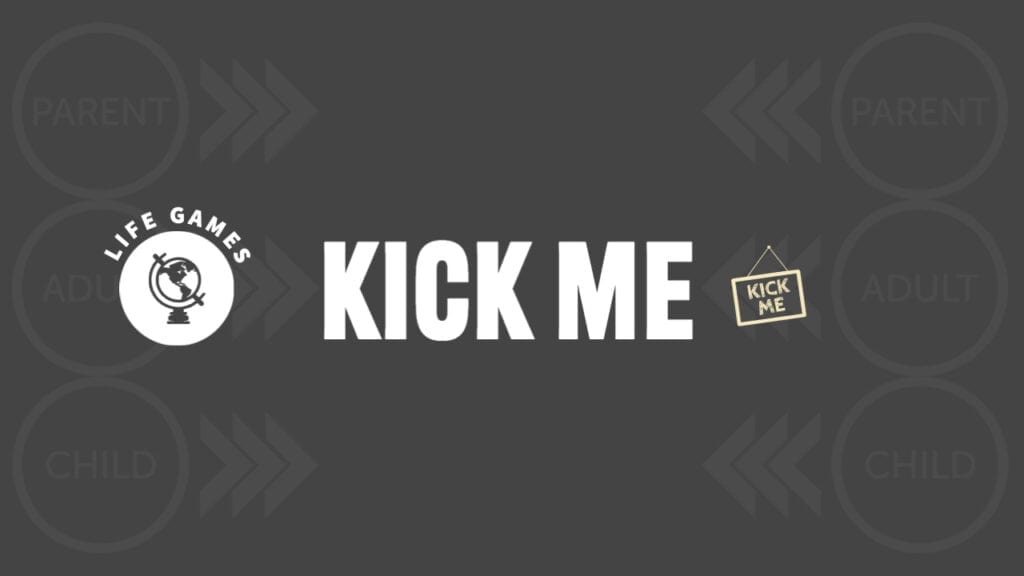
This is played by men whose social manner is equivalent to wearing a sign that reads ‘Please Don’t Kick Me’. The temptation is almost irresistible, and when the natural result follows, White cries piteously, ‘But the sign says “don’t kick me”.’ Then he adds incredulously, ‘Why does this always happen to me?’ (WAHM). Clinically, the WAHM may be introjected and disguised in the ‘Psychiatry’ cliché: ‘Whenever I’m under stress, I get all shook up.’ One game element in WAHM comes from inverse pride: ‘My misfortunes are better than yours.’ This factor is often found in paranoids.
If the people in his environment are restrained from striking at him by kindheartedness, ‘I’m Only Trying to Help You’, social convention or organizational rules, his behaviour becomes more and more provocative until he transgresses the limits and forces them to oblige. These are men who are cast out, the jilted and the job losers.
The corresponding game among women is ‘Threadbare’. Often genteel, they take pains to be shabby. They see to it that their earnings, for ‘good’ reasons, never rise much above the subsistence level. If they have a windfall, there are always enterprising young men who will help them get rid of it, giving them in return shares in a worthless business promotion or something equivalent. Colloquially, such a woman is called ‘Mother’s Friend’, always ready to give judicious Parental advice and living vicariously on the experience of others. Their WAHM is a silent one, and only their demeanour of brave struggle suggests ‘Why does this always happen to me?’
An interesting form of WAHM occurs in well-adapted people who reap increasing rewards and successes, often beyond their own expectations. Here the WAHM may lead to serious and constructive thinking, and to personal growth in the best sense, if it takes the form ‘What did I really do to deserve this?’